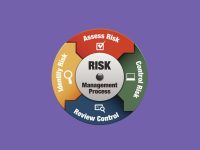The year 2025 has only just begun and it’s already been coined as “the year of AI Agents” on LinkedIn. Many new startups popped out of the ground, promising to deploy autonomous agents to make smart technological and business decisions. For aluminium manufacturing this translates to having autonomous agents that integrate with control systems and make process control decisions, which is currently done by plant operators.
However, the question of effectively integrating AI into critical systems still remains. How can we trust the knowledge of AI Agents? As outlined in Stuart Russell and Peter Norvig’s Artificial Intelligence: A Modern Approach (4th Edition), the foundations of AI revolve around knowledge representation, reasoning, and learning.
For aluminium manufacturers to successfully leverage AI, they must, therefore tackle the challenge of building “knowledge”. The knowledge to make technological decisions currently resides in the heads of engineers and operators. It’s this knowledge that the AI Agent needs to acquire to make informed decisions. The question is then, how does the AI Agent learn this knowledge?
This is where beliefs in the AI community diverge. On the one hand, there are “progressive” believers that this knowledge can be learned from the data itself. Machine learning approaches such as reinforcement learning have demonstrated that, for some applications, algorithms indeed are able to learn remarkable feats. On the other hand, the camp of the “conservative” AI experts dismisses learning from data as hubris.
They argue that knowledge is derived from years of experience, contextual understanding, and reflective interpretation. Traditional manufacturing experts have long cautioned that good decisions stem from carefully applying human insights to data. This perspective emphasises the importance of ensuring knowledge is complete, consistent, correct, and current. Without a robust mechanism to maintain a knowledge base, AI agents risk making flawed decisions.
Finally, it’s worth pointing out that the manufacturing sector continues to grapple with data quality issues and legacy data systems, and the aluminium industry is no exception. Whether due to disparate data sources, incomplete recording practices, or inconsistent data formatting – poor-quality data makes it unsuitable for machine learning.
Personally, I believe in a future where AI Agents are responsible for certain plant operations. However, I put myself in the “conservative camp”. For one, having worked for over six years with industrial data, I simply don’t believe its quality is high enough to derive knowledge from without human interpretation. In addition, it would be a waste not to leverage the decades of experience that resides in the heads of engineers and plant operators.
_____________________________________________
About Denis Gontcharov
Denis is a data consultant who helps aluminium manufacturers break down data silos. For the past five years, he has supported the aluminium industry with IT and data services as an independent contractor.
Previously, Denis was employed as a data engineer at Novelis in Germany, a leading aluminium rolling and recycling enterprise, where he played a pivotal role in transferring process data from production machinery to cloud systems. Prior to this, he was employed as a process engineer at TRIMET’s aluminium smelters in France and Germany, developing control software for the electrolysis process. Denis is a graduate in Materials Engineering from KU Leuven, Belgium, and is currently based in Berlin.
Decoding Data with Denis: In this exclusive AL Circle column, Denis delves into the evolving data management landscape within the aluminium industry. He explores how manufacturers are actively breaking data silos to integrate information across operations.
Keep an eye out for his column on the future prospects of unified data systems, highlighting their potential to enhance efficiency, decision-making, and innovation throughout the entire aluminium value chain.
















